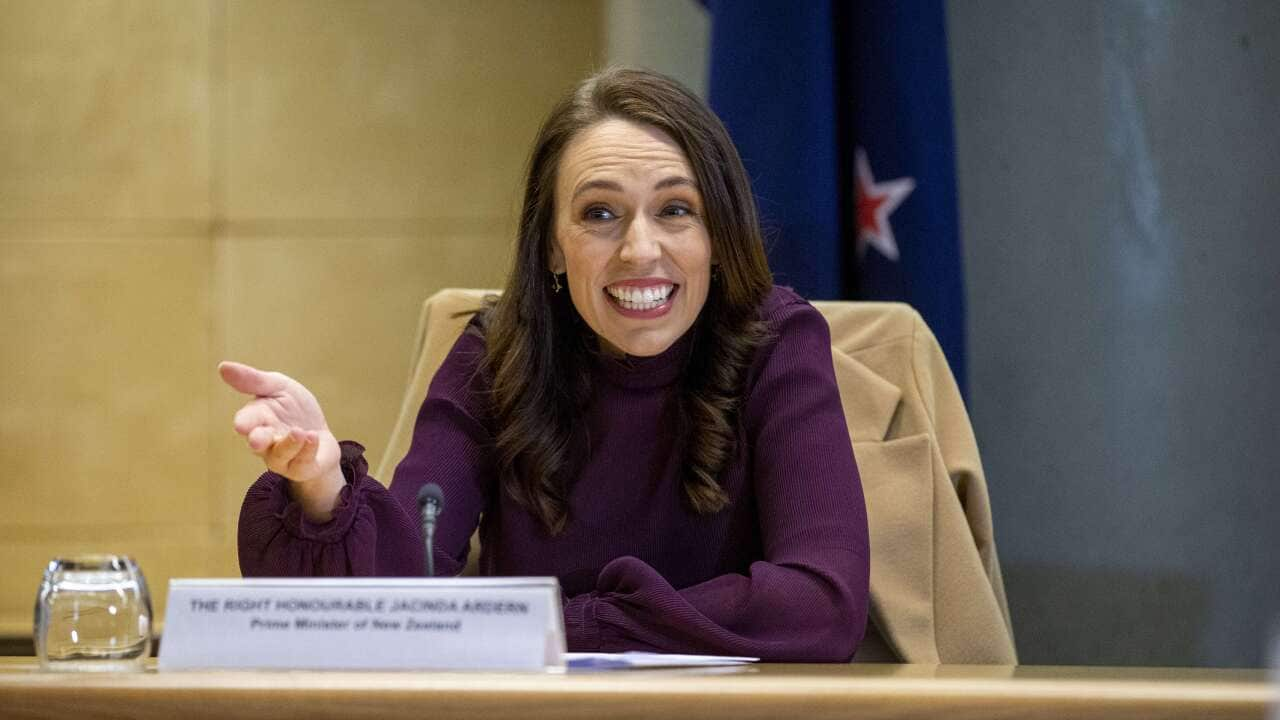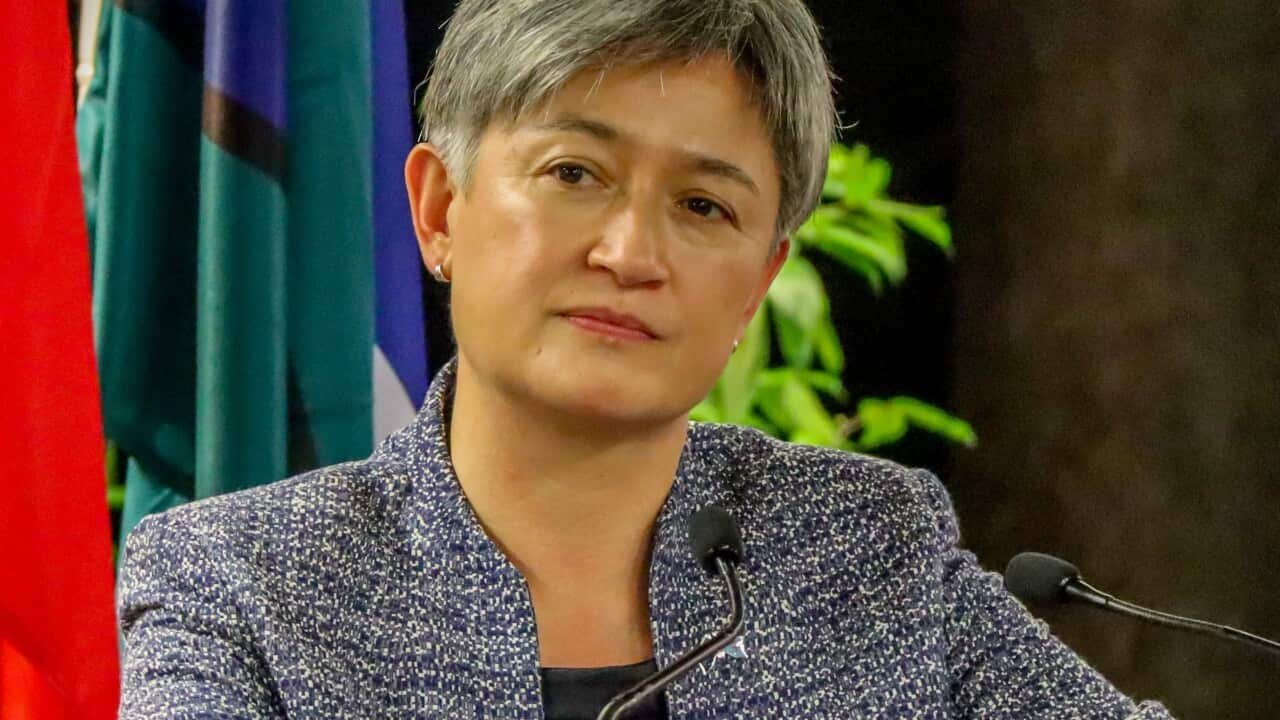Key Points
- Jacinda Ardern and Anthony Albanese have signalled progress toward resolving a key sore point.
- They are expected to cover economics, security and climate.
- Mr Albanese declared his government intended to work on making it easier for New Zealanders to get Australian citizenship.
New Zealand Prime Minister Jacinda Ardern and Prime Minister Anthony Albanese have signalled progress toward resolving a key sore point over Australia's treatment of New Zealand citizens.
The pair held talks in Sydney on Friday, with Mr Albanese declaring his government intended to work on making it easier for New Zealanders to get Australian citizenship.
The two countries intend to have a plan in place for the changes by Anzac Day next year.

Prime Minister Anthony Albanese says Australia intends to look into how to make accessing citizenship easier for New Zealand citizens. Source: AAP / BIANCA DE MARCHI
"We’ve long argued that New Zealanders are Australia’s best migrants," she told reporters.
"Our ask has been for there to be a greater acknowledgement of the role that New Zealanders play here in Australia."
to streamline the citizenship process as part of a "reset" of relations under the new government.
Mr Albanese said the commitment demonstrated a recognition of the need for New Zealanders to "get more rights that are more consistent."
"We don't want people to be temporary residents forever and what we’ll do is work on ways for a pathway to citizenship," he said.
The prime minister also said his government intended to look into the capacity for New Zealanders who are residents in Australia to get "voting rights".
"It is, I think, a really common-sense position to at least examine over coming months," he said.
Visa cancellations
New Zealand's concern over the treatment of its citizens has long included Australia's track record of deporting those convicted of crimes, despite individuals living out most of their lives in Australia on temporary visas.
The contentious visa cancellation powers come under what's known as section 501 of the Migration Act.
The government can cancel visas of non-citizens over character concerns as well as for criminal convictions, or if they are considered part of a group suspected of wrongdoing.
The previous government had taken a hardline stance on the issue, with 166 New Zealanders deported between 1 January 2021 and 31 December 2021 alone.
Mr Albanese said his government remained committed to the policy, but signalled it now intends to take a common-sense approach to decisions.
"501s will continue to exist, we will continue to deport people when appropriate but we will have some common sense apply here," he said.
"Where you have a circumstance where someone has lived their entire life effectively in Australia with no connection to New Zealand — common sense should apply."
Ms Ardern said the response was "exactly what we have asked of Australia."
"What we have been seeking is commonsense and the spirit of friendship," she said.
Climate change
Both Ms Ardern and Mr Albanese have described the start of a new government in Australia as the opportunity to "reset" relations between the countries.
The pair agreed that annual meetings would be held between each nation's ministers with responsibility for the economy, defence, climate change and foreign affairs.
Ms Ardern said it was "obvious" there were ways Australia and New Zealand could work together alongside the region on addressing climate change.
"There's a role for us to play in exchanging ideas as we look for innovative solutions to the climate challenges," she said.
The commitment comes after the Albanese government has adopted a more ambitious emissions reduction target of 43 per cent by 2030.
Mr Albanese said Australia's new position on climate change had been welcomed "around the world" during his recent visit to Europe, as well as from Pacific partners.
"They have all expressed that support for the changed position that Australia has," she said.
China
The meeting between Ms Ardern and Mr Albanese comes ahead of the pair attending the Pacific Islands Forum (PIF) in Fiji next Monday.
This year's annual forum is expected to discuss China's militarisation and attempts to build security agreements with Pacific nations.
, and has since made attempts to expand the approach.
Mr Albanese said he expected the security agreements to be on the agenda for the Pacific leaders discussions.
"There is no doubt that security and security agreements will be a topic," he said.
"We know we are living in an era of strategic competition in the region.
Ms Ardern used a speech on Thursday to argue it was overly simplistic to see modern geopolitics as a contest between democracies and authoritarian regimes such as China.
Ms Ardern said it was wrong to characterise the war in Ukraine as “the West versus Russia” or “democracy versus autocracy”.
“We’re a liberal democracy and we seek to promote, of course, the values that are important to us,” Ms Ardern said.
“But what we also seek is to ensure that we base our foreign policy responses on facts, not assertion and assumption.”
Asked about her position, she denied her statement amounted to a softened stance on China.
"The short answer is no," she said.
"It's true that we have seen a more assertive position from China in our region. But our position is that we shouldn't suddenly say on that basis that sovereign nations have to pick for whom their relationships are with."
Ms Ardern also signalled the importance of furthering New Zealand and Australia's cooperation on supporting the Indigenous people of their countries.
She said she believed there was a "lot that we can do together" to further economic opportunities for First Nations people "as well as the exchange of ideas".













